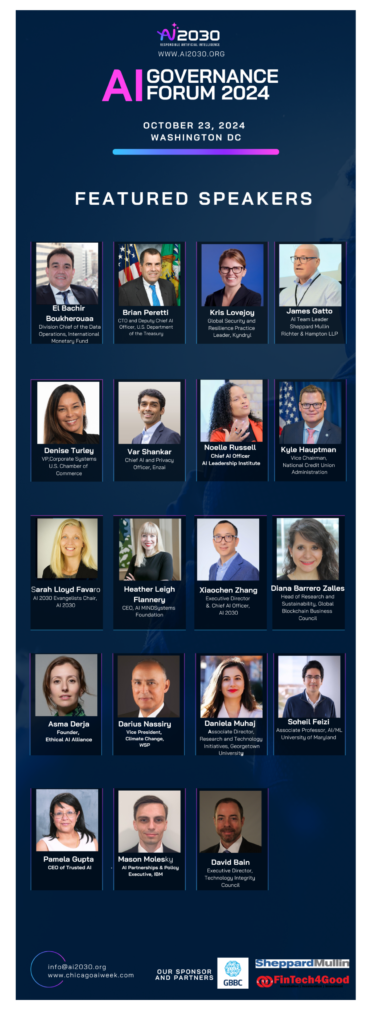AI 2030 Institute is a global leader in AI workforce development, empowering 100,000 professionals through immersive training and creating 50,000 new jobs by 2030 through entrepreneurship and strategic partnerships. In collaboration with top tech companies, the institute offers cutting-edge technical courses, such as the NVIDIA Certified Generative AI Course, along with advanced AI engineering and cloud AI certifications. For business leaders and policymakers, it provides non-technical programs, including the Certified Responsible AI Leaders Program, equipping them with expertise in AI governance, risk management, and ethical AI implementation. By bridging the AI talent gap and fostering responsible AI adoption, AI 2030 Institute is shaping the future of AI-driven innovation and economic growth.
The Certified Responsible AI Leader Program is an immersive, high-energy program designed for AI professionals who are eager to lead in the rapidly evolving AI landscape. This program, developed by AI 2030, combines cutting-edge insights, hands-on activities, and interactive discussions with industry leaders to equip participants with the strategies and tools needed to drive responsible AI innovation across industries.
Specifically tailored for senior AI leaders, the program offers the knowledge and practical tools required to address critical AI challenges such as privacy, transparency, fairness, and accountability. Participants will learn how to operationalize responsible AI practices while fostering innovation and ensuring ethical outcomes in their organizations.
Next Delivery Date: March 12, 2025- Jun18, 2025
Program Highlights:

Program Curriculum:
Module 1: Enterprise AI Strategy and Responsible AI Framework
Description:
This module focuses on the opportunities presented by AI, particularly Generative AI, along with global and industry trends and practical use cases. Participants will explore how to align AI strategies with business objectives while ensuring that responsible AI practices are deeply embedded into their organization’s broader strategy. The module covers key foundational principles of responsible AI, including transparency, accountability, fairness, privacy-preservation, safety, security, and sustainability.
Module 2: AI Risk Management
Description:
This module delves into the various risks associated with AI, from ethical and operational challenges to legal and regulatory concerns. Rather than just providing a generic framework, it dives deep into different AI risk management frameworks. Participants will explore global AI regulatory evolution, including trends in compliance and governance. The module will also share best practices for managing these risks in a rapidly evolving AI landscape, helping participants implement effective risk management strategies.
Module 3: Operationalizing Responsible AI
Description:
This module prepares senior leaders to operationalize responsible AI across their organizations, emphasizing responsible AI design, procurement, and implementation. Participants will learn how to embed responsible AI principles into AI systems, acquire AI solutions that meet ethical and regulatory standards, and deploy scalable, secure, and sustainable AI initiatives.
Module 4: Responsible AI Leaders Talk
Description:
In this module, participants will engage with thought leaders and industry experts to explore the challenges and opportunities of leading responsible AI initiatives. Through interactive discussions and real-world examples, they will gain valuable insights into effective AI leadership. Participants will also complete a capstone project, applying responsible AI principles to real-world challenges, ensuring practical learning and readiness to lead responsible AI efforts within their organizations.
Program Structure:

Program Benefits:

The AI 2030 Summit-AI Governance Forum is a one-day event focused on addressing the critical challenges and opportunities in AI governance. Tailored for AI leaders, policymakers, and industry professionals, the forum is designed to foster meaningful discussions and offer actionable insights into the responsible development, adoption, and regulation of AI technologies.
